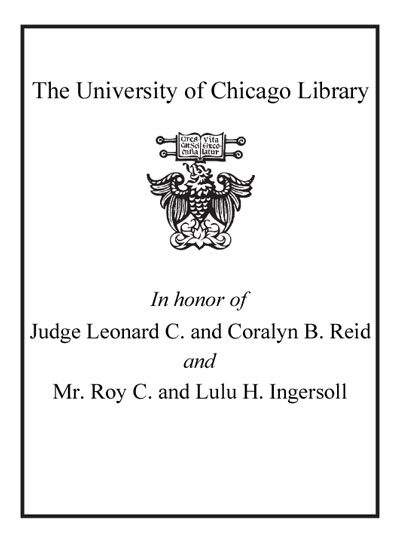Review by Choice Review
For those who saw the 2009 movie Pirate Radio, this is the book that tells the true story behind the movie. Though the telegraph was the first instantaneous digital technology, it is with the invention of the "wireless telegraph" or radio that the question first arises: should there be free competition or a government-sanctioned monopoly in the communications industry? In the UK in the early decades of the 20th century, on one side of this question stood entrepreneurs and free market economists Friedrich von Hayek and Ronald Coase; on the other side were politicians and intellectuals who advocated government intervention. This history contains valuable lessons for modern attempts to regulate the Internet in the "public interest." Johns (Univ. of Chicago, Piracy: The Intellectual Property Wars from Gutenberg to Gates, CH, Jun'10, 47-5795) does a remarkable job telling a story that not only involves intellectual debates, but also includes murder and the rise of rock 'n' roll. Valuable for all readers, this book is must reading for those in the music industry today and their political supporters, who are trying to maintain the old way of doing business in light of the Internet and digital technology. Summing Up: Highly recommended. Public, academic, and professional library collections. R. J. Phillips Networks Financial Institute
Copyright American Library Association, used with permission.
Review by Booklist Review
Johns, an expert in the field of intellectual property and piracy, walks us through the history of pirate radio. Pirate radio stations were most famously a British phenomenon (although many other countries had their own versions of these outlaw broadcasters); they operated from offshore sites, usually a boat, skirting the British regulations regarding license fees, broadcast rights, etc. The BBC saw them as illegal and disreputable, but the pirate broadcasters and their listeners (and even many artists) thought they were exciting and indispensable. The end of British pirate radio came soon after a partnership between two colorful station owners, Oliver Smedley and Reg Calvert, ended in violence, property theft, and death. Highly detailed but unfortunately rather dry, the book is closer in texture to a textbook than it is to a lively history of this fascinating period in British broadcasting history. For readers interested in the subject, however, the wealth of information in the book should outweigh its lack of zest.--Pitt, David Copyright 2010 Booklist
From Booklist, Copyright (c) American Library Association. Used with permission.
Review by Library Journal Review
Johns (history, Univ. of Chicago), an expert on intellectual property and piracy, presents a history of the underground shipboard radio phenomenon in Great Britain in the 1960s. He uses the murder of illegal radio operator Reg Calvert by fellow pirate Oliver Smedley as a backdrop to the story of how a group of people fought the BBC's exclusive rights, granted in the 1920s, to transmit radio programming. Johns assesses these pirates' contributions to British culture, especially in view of the BBC's unwillingness to play rock music during the period. He uses a variety of secondary sources along with newspapers from the period, trial records from the Smedley murder case, and BBC documentation. Verdict While presented as a scholarly historical study, the book also ties in modern issues of copyright and intellectual property. The Smedley murder gives it a more popular slant as well for those who enjoyed Steve Conway's memoir of life on a pirate radio boat in the 1980s, ShipRocked.-Joel W Tscherne, Bryant & Stratton Coll., OH (c) Copyright 2010. Library Journals LLC, a wholly owned subsidiary of Media Source, Inc. No redistribution permitted.
(c) Copyright Library Journals LLC, a wholly owned subsidiary of Media Source, Inc. No redistribution permitted.
Review by Kirkus Book Review
A historical retelling of the pirate-radio revolution that swept throughout 1960s England.In June 1966, pirate-radio rivals Reg Calvert and Oliver Smedley faced off in Smedley's home, leaving Calvert dead. After chronicling the encounter, Johns (History/Univ. of Chicago;Piracy: The Intellectual Property Wars from Gutenberg to Gates, 2010, etc.) takes a leap backward to the '20s and England's initial steps to introduce the nation to radio. After the British Broadcasting Corporation monopolized the airwaves, several music lovers and businessmen set out to win them back, oftentimes employing guerrilla tactics to offer free music to the people. These so-called pirates of radio began assembling their operations beyond territorial watersmost notably, Shivering Sands, an abandoned, high-rise military fort in an estuary of the Thames. Described as "sinister-looking boxes perched on steel legs," the abandoned structure was occupied by Calvert and his colleagues, who imbued it with new life. What began as an enterprise of free-spirited entrepreneurs transmitting music from off-shore ships soon morphed into something else. "Floating DJs were one thing," writes the author. "Squatters on military installations was quite another." The stakes continued to rise, eventually leading to an actual invasion of the fort by Smedley's men. It was, quite literally, piratical behavior on the high seas, eventually leading Calvert to Smedley's home to settle the matter. Yet Calvert's murder functions solely as a convenient focal point for the larger implications that arose during the movement. The pirate-radio revolution spurred a debate that would have long-lasting implications. While Americans celebrated peace and love at Woodstock, the British pirates pushed the boundaries of copyright and information sharing well into the 21st century. Smedley called Calvert's murder "a joke gone sour," yet the lasting effects of their revolution is no laughing matter.A powerful yet understated history of pirate radio and its impact in the Internet age.]] Copyright Kirkus Reviews, used with permission.
Copyright (c) Kirkus Reviews, used with permission.
Review by Choice Review
Review by Booklist Review
Review by Library Journal Review
Review by Kirkus Book Review

